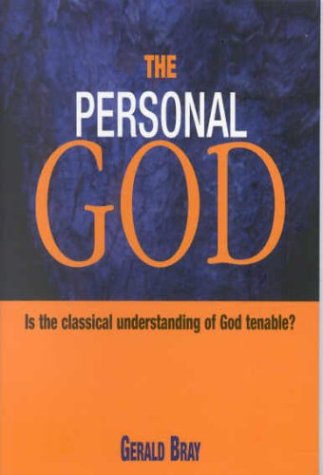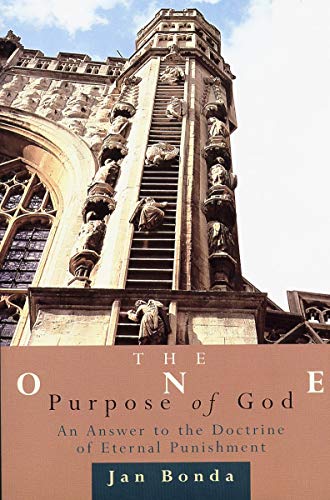Volume 25 - Issue 1
Review Article: Select Works of Dr D. Martyn Lloyd-Jones
By Martin DowriesDr Martyn Lloyd-Jones was pre-eminently a preacher and not a writer. That his published writings should exceed sixty volumes, the bulk of which have appeared posthumously, is something of an anomaly. The vast majority of his books are edited sermons, consecutively preached and expository in nature. (There are nine volumes in his series on Ephesians and eleven on Romans.) Although he was not an academic theologian, Lloyd-Jones (ML-J) had a profound effect on the resurgence of evangelical theology in the UK at student and church level.
What then can be found of interest in his writings for today’s evangelicals? The answer to that question is probably a deep reverence for the Word of God, the fusion of logic and prayer, clarity, conviction, stability, correction, warning, encouragement, and above all an appreciation of the sheer greatness of God.
Readers should not expect to find these volumes as up-to-date commentaries. The Romans series for example was preached on Friday evenings from 1955 to 1968 to a London congregation of considerable diversity. Stylistically there is much repetition and recapitulation, as one would expect in preaching, and few open-ended conclusions. Although lacking the exegetical precision of technical commentaries ML-J is always far from naïve and is consistently sensitive to the text. His sermons are devotional in the best sense; deeply doctrinal, covering the great truths of the faith, and pastoral in intent, applying God’s diagnosis of our need and his remedy. In short here is theology which does not exist in a vacuum.
There are several areas where ML-J can and should be read with profit.
Preaching
Far from being out of place in the modern world he considered a recovery of true preaching to be the need of both the church and the world. ML-J’s high view of the primacy of preaching is set out in Preaching and Preachers (Hodder and Stoughton, 1976). In the act of preaching the message must control the methods used. Preaching can never be detached,
so often we discuss theology in a light manner … as if we were handling something quite apart from our lives and our well-being and eternal destiny.
Style is not unimportant but is subsidiary to the content of the sermon, and so, for ML-J, illustrations, humour and eloquence must be regulated by the message. His central thesis is that preaching is ‘logic on fire … theology coming through a man who is on fire’. The rare combination of passion, oratory, and doctrine is subsumed under the ultimate goal of the ministry:
What is the chief end of preaching? I like to think it is this. It is to give men and women a sense of God and his presence.
For ML-J the act of preaching involved a transaction between the pulpit and the pew. It required the anointing of the Spirit (‘unction’) and spiritual-mindedness in the congregation, coupled with the expectation that God is present and is dealing with people. This point is so important that ML-J reserves it for the last chapter and advises ‘seek it until you have it; be content with nothing else’. He advocates a holistic approach to preparation, catering for differing temperaments and aiming to secure the preparation of the preacher and the message, as well as the presentation of the message. Preaching should be serious, lively, persuasive, warm, urgent, and touched with genuine emotion. Preaching ought never to become lecturing. Here is a voice from the past that all who enter the pulpit should listen to. ML-J’s primary calling was as an evangelist, although his published material does not indicate this. God’s Way Not Ours (Banner of Truth, 1998) is a good example of his evangelistic preaching. In these sermons, from Isaiah 1 and preached in 1963, he diagnoses the radical effects of sin, exposing how we have failed to glorify God, and cuts to the heart of human autonomy. Stripped of all pretensions before a holy God, and humbled to the dust, one can then appreciate the awesomeness and heights of grace. It was such preaching on sin and judgement that revolutionised the life of R.V.G. Tasker when he was Professor of New Testament Exegesis in the University of London.
Evangelical Unity and Ecclesiology
This may come as a surprise since he was accused of dividing evangelicalism over the issue of secession. Nevertheless there are several significant addresses (as opposed to sermons) in Knowing the Times(Banner of Truth, 1989). Although not restricted to evangelical unity the addresses entitled ‘Maintaining the Evangelical Faith Today’ (1952), ‘The Basis of Christianity Unity’ (1962), ‘Consider Your Ways: The Outlining of a New Strategy’ (1963) and ‘Evangelical Unity: An Appeal’ (1966) are particularly germane. Given in the context of the denominational turbulence of the 1950s and 1960s, and the evangelical responses to the ecumenical movement, ML-J argued the case for separation and greater evangelical unity. His reading of the times was that evangelicals were at a turning point and should respond to the rising tide of doctrinal indifference and ‘paper’ unity by coming together in closer fellowship and co-operation. This, in time, would mean separation from the doctrinally compromised historic denominations:
Are you content with a kind of paper church, with a formula that people interpret in their own way, you being just an evangelical wing in the comprehensive, national territorial church?… The church surely is not a paper definition. I am sorry, I cannot accept the view that the church consists of articles or of a confession of faith … A church consists of living people.
Unfortunately the ill effects of ML-J’s failed appeal to evangelicals in the UK has, in many quarters, obscured the issues that he was raising. His appeal was not just negative (separation) but positive (evangelical unity). Far from desiring division he was appealing for a return to the NT teaching, the true combination of orthodoxy and spiritual life without which unity in or between denominations is illusory. ‘What is an Evangelical?’ (1971) is an altogether more positive presentation of evangelical distinctives, essentials and priorities. In laying these foundations ML-J calls upon us who are ‘evangelical’ to examine whether we stand on this ground or if we have shifted geographically. It is a piece that remains searching, despite its age, and cuts through the fog of triumphalism and smug self-congratulation. His more detailed teaching on the church, without the immediate intrusion of ecumenical issues, can be found in Christian Unity: Ephesians 4:1–16(Banner of Truth, 1980).
Pneumatology and Revival
It is probably true to say that ML-J is remembered today chiefly for his views on the post-conversion baptism (or baptisms) with the Spirit. Before the charismatic movement began he taught, as part of the regular exposition of Romans and Ephesians, the experimental nature of the Spirit’s work in the Christian life. Of particular note are God’s Ultimate Purpose: Ephesians 1–23 (Banner of Truth, 1978), The Sons of God: Romans 8:5–17 (Banner of Truth, 1974), Joy Unspeakable (Kingsway, 1984) and Prove All Things(Kingsway, 1985). The purpose of the baptism is to give the believer the assurance of adoption and sonship. It is a felt experience. As such it is non-deductive and forms the highest possible awareness of the love of God. Far from being worked up, or claimed, it can only be ‘given’ by the Spirit. The primacy of assurance as the meaning of the baptism is certainly unique to ML-J in the twentieth century, although he lays great stress on its importance among earlier evangelicals. ML-J’s expression of the doctrine is highly Trinitarian, patiently argued, refuses to capitulate to phenomena, and is taught within the context of God’s sovereignty and holiness. He complains that by and large evangelicals have become superficial in their dealings with God and argues for an experience that is framed within the parameters of Romans 8:15–17. It is doubtful whether the plethora of texts cited can sustain his argument, and there seems to be an over reliance on the authority and normative status of past Christian testimony, so that whether a text has been read into is not a redundant question. However, exegetical disagreement ought not to mask the issue of true experience. ML-J, whether at fault or not, probes the errors of superficiality and poverty of experience, and causes us to ask uncomfortable questions of our own spiritual lives. ML-J’s teaching on revival forms a unity with his teaching on the Spirit. References to revival are scattered throughout his writings but are given clearest expression in Revival (Marshall Pickering, 1992). These sermons were originally delivered in 1959 to commemorate the centenary of the last major revival in the UK. ML-J stands in the tradition of Jonathan Edwards and the Welsh Calvinistic Methodists. He thoroughly eschews all attempts to bring about revival that are not God-centred, especially those associated with Finney. For ML-J the greatest need of the hour was a true revival, one that issued in repentance and a desire to behold God’s glory. Yet in his view revival is no different to the normal pattern of conversion, it is only the numbers that are greater. Likewise in revival the Spirit’s work of baptising believers is carried out in numerous cases simultaneously. In point of fact Christians find that ‘they were suddenly given an absolute certainty and assurance of their relationship to God’. Neither is revival divorced from the preaching of Christ crucified, as if it were something mystical and non-rational that carried no doctrinal awareness. Rather it is a time when:
these things are made so clear by the Holy Spirit that the whole Church is filled with this glimpse of his glory; the light of the knowledge of the glory of God in the face of Jesus Christ.
Given the resurgence of interest in revival at church level the mature distillation of wisdom and theological weight found in this volume is essential reading.
Sanctification
The return among evangelicals from a perfectionist and passive understanding of holiness to a more robust and biblical model is in part due to the influence of ML-J. From the beginning of his prominence among British evangelicals he was the odd man out in rejecting the Keswick teaching. Although much of this is only of historic interest, though not exclusively so, the fundamental methodology of starting with God and not our sins and problems is as needed as ever. ML-J is hardly alone in pointing this out but the thoroughness with which he employs this method and the pastoral sensitivity which accompanies it are exemplary. It is the estimation of Peter Lewis that ML-J’s chief theological contribution is The New Man: Romans 6 (Banner of Truth, 1972). This volume deals with Romans 6:1–23 and emphatically asserts that the greatest aid to holiness is to know that we have died to sin with Christ and that we are now raised with him. Before we are called to do anything we must understand what has been done to us in an objective sense. This may be called the great indicative of the Christian life without the knowledge of which the many imperatives have greater weight. I can only add that his exposition brings a clear understanding of just how we have been liberated from sin by Christ, it is a shame to miss out on such riches.
Spiritual Thinking
ML-J firmly held to the principle that much ‘counselling’ could be done from the pulpit and was largely a matter of clear biblical thinking. His handling of the various states of Christian experience is both the product of a ‘puritan’ pastoral mindset and the necessary skill he learned as a physician. In Spiritual Depression(Marshall Pickering, 1991) he argues that an unhappy Christian is a pretty poor recommendation for the Christian faith, yet such unhappiness is far from uncommon. The causes range from false teaching, regret, fear of the future and ignorance of God’s dealings with us, to weariness, feelings, imbalance between mind, heart, and will, chastening and a refusal to learn godly contentment. The failures to practise self-examination and the neglect of thinking in a doctrinal manner are the two chief reasons why we are often swamped by problems. The same principles can be seen in Faith on Trial (IVP, 1965) where in a series of sermons on Psalm 73 ML-J sees the recovery of the psalmist as his ability to think correctly about his position. Having the presence of mind to think and act in situations instead of merely reacting is the product of disciplined godly reflection. The same methodology, when applied to understanding the mechanics of Scripture, is seen in Studies in the Sermon on the Mount (IVP, 1993). For those wishing to read his books this volume is simultaneously the best place to start and the finest example of his thinking. What he achieves in these books is the transformation of thinking that is merely coloured by a few verses to that which in the highest sense is formed by the mind and ways of God.
Church History
The record of God’s dealings with his people in the past, in their successes and failures, is an integral part of ML-J’s writing. Chiefly it is the reformers, puritans, and the men of the eighteenth century that he utilises, as can be seen in The Puritans: Their Origins and Successors (Banner of Truth, 1987). The role of church history for ML-J was threefold. We must learn from the past in order to apply former lessons to present situations. This was particularly so in the mid-1960s as he drew on the lessons of the great ejection (1662). Secondly, in the day of small things we are to remember what God has done in the past, especially in revival, and therefore what he can do again. Thirdly, and in connection with his pneumatology, we should not let our present experience determine the meaning of texts. The details of former Christian testimony can give us a salutary lesson on the profound richness available to us. ML-J is not exempt from the criticism of giving history too much weight, he can even refer to it as a ‘canon of interpretation’ when dealing with experiences of assurance. Similarly his use of past historical debates and events is clearly used as an endorsement of the point he is making. Not a little of this borders on reductionism. Nevertheless his knowledge of church history is both very detailed and impressive. Its importance to his ministry should cause us to ponder how well Christian history is known and loved in our own churches, especially in a post-modern age.
What ML-J once said of Jonathan Edwards, quoting ‘Rabbi’ Duncan, is also true of him, all his doctrine was application and his application, doctrine. In many ways his writings show him as a model preacher, not to be imitated, but with a blend of theology and life that was well matched and can serve as an example for all in ministry. This comes to the fore in To God’s Glory: Romans 11 (Banner of Truth, 1998). After dealing with the complex problem of the Jews and their place in God’s purposes he ends with three chapters focusing on Paul’s doxology. In his estimation if we can pass through even these deep, and often murky, exegetical waters without rising to the note of praise and adoration then we have not even begun:
So the test of our view of salvation and of our appreciation of it, is simply this: whenever you think of it does it bring you to this doxology? If it does not then I take leave to suggest to you that you know nothing about it … if when you contemplate your condition as a Christian, as a saved person, if you do not come to this doxology, I say, there is something radically wrong somewhere.
This doxological element is at the heart of ML-J’s writings, as it is at the heart of all God-centred theology. It may well be that at this point ML-J’s writings will continue to do us great service as they direct us back to the great and glorious God whose wisdom is unsearchable and whose ways are past finding out.
Martin Dowries
Martin Dowries studied theology at Newport and is currently the Staff Worker for the Religious and Theological Studies Fellowship in Wales and the South West of England. At present he is writing a student introduction to the doctrine of the Trinity.






